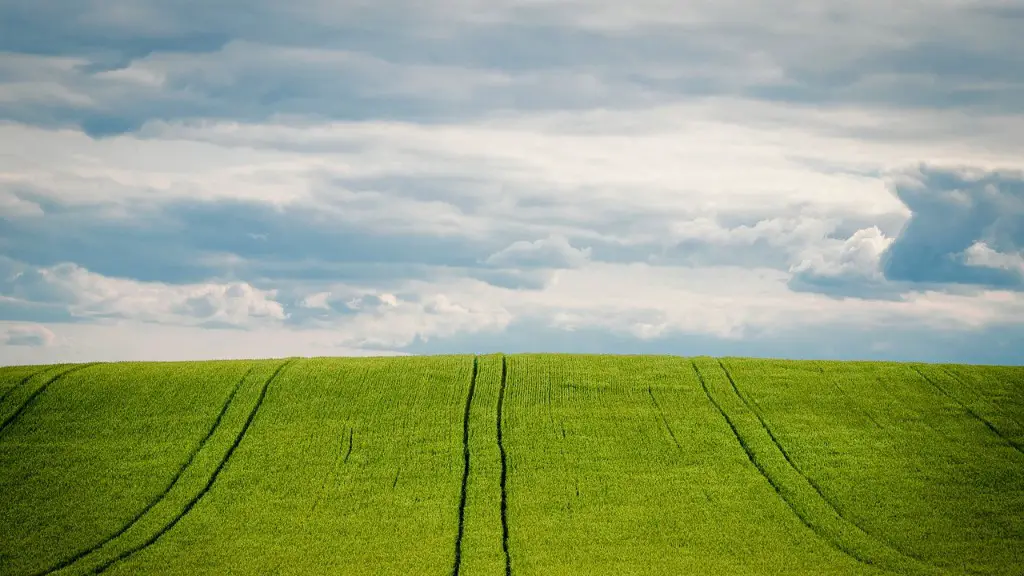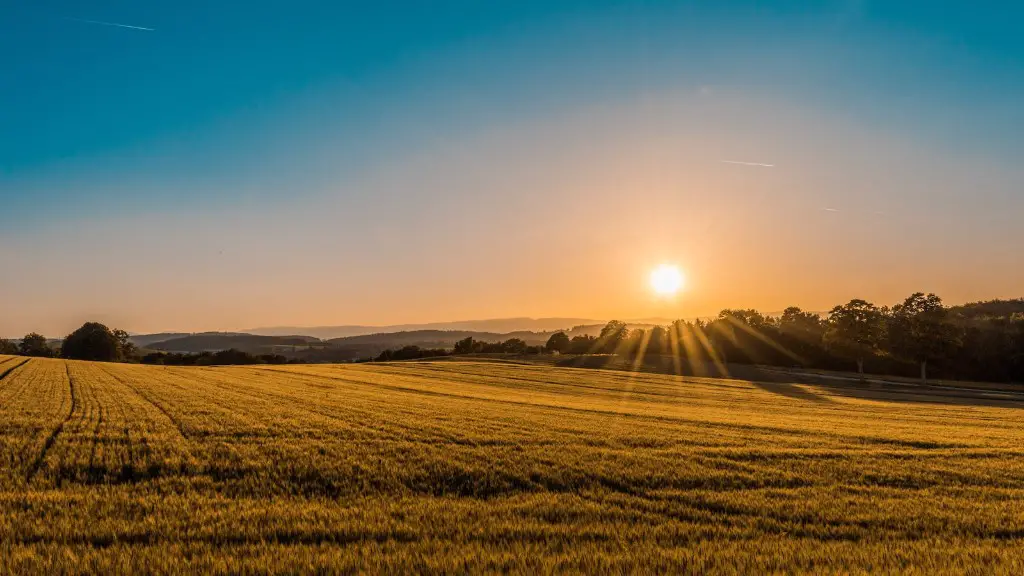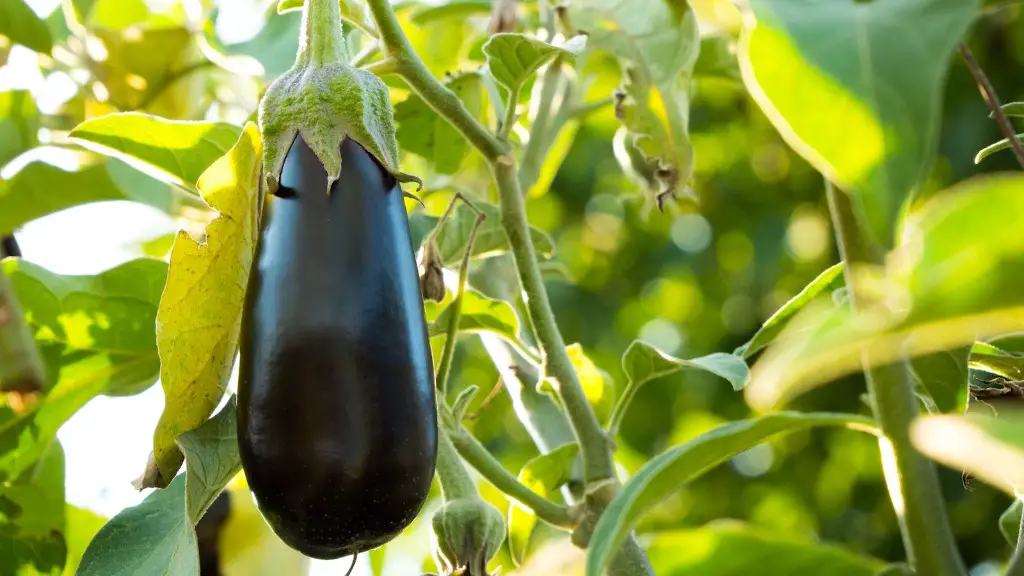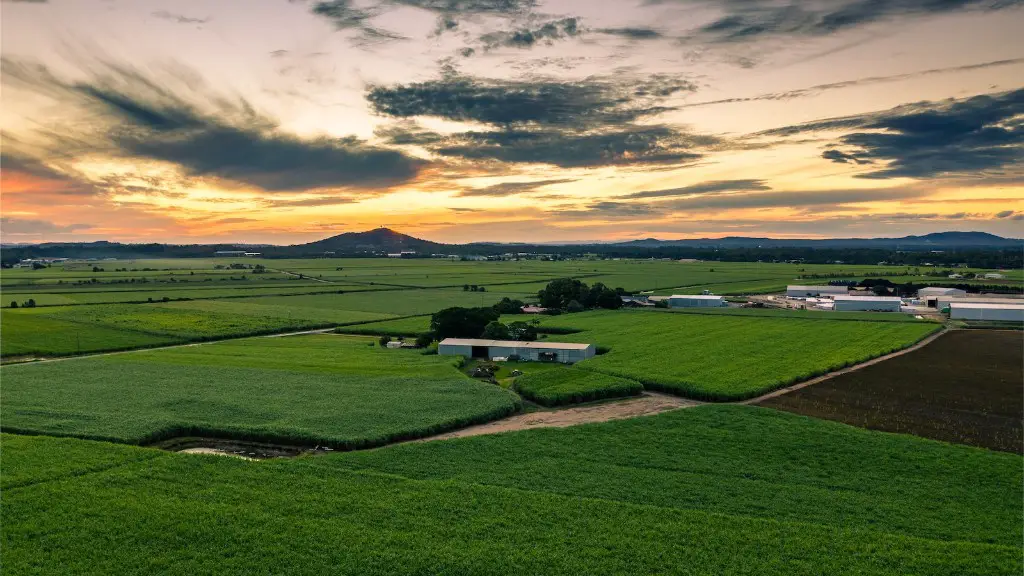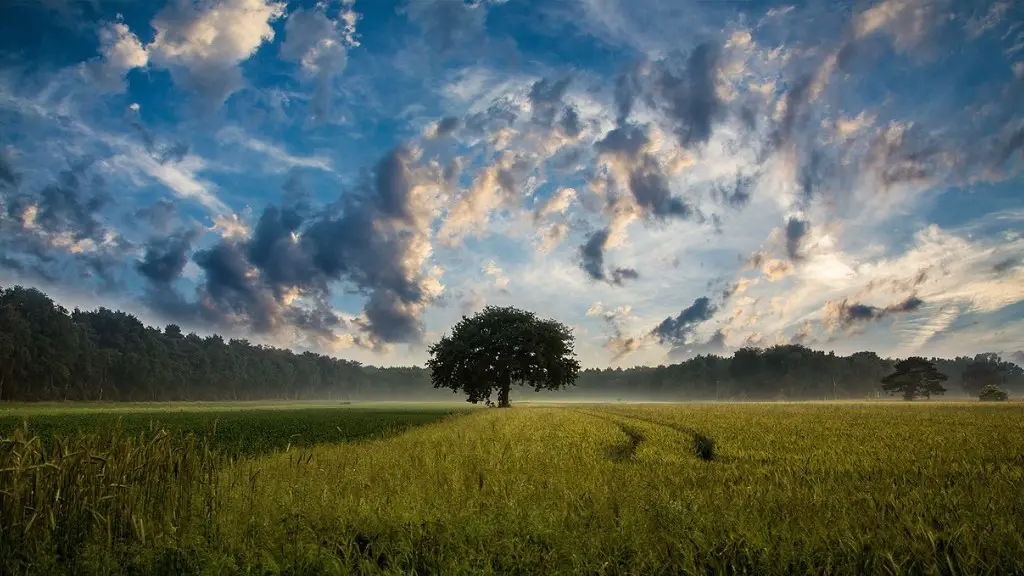Agriculture has played a key role in human history and has been instrumental in the development of civilizations. Agriculture allowed for the domestication of plants and animals, which led to the development of cities and the rise of civilizations. Agriculture also allowed for the development of new technologies and the spread of knowledge. Agriculture has had a positive impact on human health, as it has allowed for the development of new medical technologies and the spread of medical knowledge. Agriculture has also helped to feed the world’s population and has played a key role in the development of the global economy.
It is difficult to say definitively whether agriculture was good or bad for humans. On the one hand, agriculture allowed humans to settle in one place and develop civilizations. Agriculture also allowed for the domestication of plants and animals, which led to a more reliable food supply. On the other hand, agriculture led to a sedentary lifestyle, which made humans more susceptible to diseases. Agriculture also led to environmental degradation, as humans cleared forests and grasslands to make way for crops.
Why was agriculture not good for humans?
Farming allowed for the domestication of plants and animals, which led to the development of civilizations. However, this also resulted in the rise of deep class divisions, as those who controlled the food sources had power over those who did not. Hunter-gatherers, who relied on the natural world for their sustenance, were at a disadvantage compared to those who could farm and store food. This led to conflict and suffering for many people throughout history.
When early humans began farming, they were able to produce enough food that they no longer had to migrate to their food source. This meant they could build permanent structures, and develop villages, towns, and eventually even cities. Closely connected to the rise of settled societies was an increase in population.
How did agriculture help humans
More abundant food supplies could support denser populations, and farming tied people to their land. Small settlements grew into towns, and towns grew into cities. Agriculture produced enough food that people became free to pursue interests other than worrying about what they were going to eat that day. This led to the development of civilizations and the rise of cities.
There is no one answer to this question. Each person’s opinion would likely differ on what the worst mistake in human history is. However, if we are forced to choose between limiting population or trying to increase food production, many people would agree that choosing the latter has led to many problems, including starvation, warfare, and tyranny.
Why did humans get shorter after agriculture?
It is believed that humans lost inches in height when they switched from hunting and foraging to farming, due to malnourishment. This is because, when hunting and foraging, humans had a more varied diet which included more nutrients and calories than when they started farming. When farming, humans relied mostly on one or two crops, which didn’t provide as many nutrients and calories. This led to humans being shorter and thinner than their hunter-gatherer ancestors.
The growth of cities and civilizations can be traced back to the development of agriculture. By farmining crops and animals, early humans were able to meet the demands of a growing population. Today, the global population has reached over seven billion people thanks to the advances in agriculture.
Did agriculture change society forever?
The shift to agriculture from hunting and gathering changed humanity forever. Agriculture allowed for the domestication of plants and animals, which led to the development of civilizations. The Agricultural Revolution also allowed for the growth of cities and the rise of civilizations.
Agriculture is critical for global food security. Without it, we would starve and modern civilization would come to a stop. Therefore, sustainable agriculture, climate-smart agriculture, modern genetics, and improved farming methods are needed to ensure global food security.
What are 3 reasons why agriculture is important
Agriculture is the main source of raw materials for many industries. It is also important to international trade and the economy of many countries. Agriculture plays a big role in a nation’s revenue and can provide employment for a large number of people. It is also crucial to a country’s development. Agriculture can also help heal the environment.
It is commonly believed that our ancestors turned to farming because it was a more efficient means of acquiring food. However, new research suggests that this may not have been the case. Scientists have found that early farming methods were actually quite inefficient, and it wasn’t until later that they became more refined. This means that our ancestors may have turned to farming for other reasons, such as population growth or a change in climate.
Did farmers suffer in 1920s?
The Roaring ’20s were a time of great prosperity for many Americans, but farmers experienced a different reality. Farm prices started to decline after World War I, and farmers began to accumulate debt from purchasing expensive machinery. The Great Depression hit farmers particularly hard, and many lost their farms and livelihoods.
The Agricultural Revolution was a period of great change for humans. It allowed for the domestication of plants and animals, which led to a more sedentary lifestyle and the growth of civilizations. Farming provided humans with much greater quantities of food than hunting and gathering could, and storage of surpluses made it unnecessary for every woman and man to farm for themselves and their family. Job specialization became possible, with different people specializing in different tasks. The Agricultural Revolution was a turning point in human history and had a profound impact on the way we live today.
How did humans survive before agriculture
Hunter-gatherer cultures are those that forage or hunt food from their environment. This was the only way of life for humans until about 12,000 years ago when evidence of the emergence of agriculture was first found in archaeological studies. Hunter-gatherer cultures are often nomadic, as they have to move around in order to find food.
The lack of variety in the diet of early farmers led to significantly less nutrition, as reflected in the bones that archeologists dig up. The teeth and bones of hunter-gatherers tend to be healthier and less disease-ridden than their farming counterparts.
Why did humans get so tall?
The average height of humans has increased over the past few centuries, and scientists are still trying to determine the cause. The most likely cause is improved nutrition and health. While this subject of study is too complex for scientists to currently draw definite conclusions, the most reasonable explanation is that the overall increase in average height is a reflection of the overall improvement in health.
The authors say that, in general, populations tended to get shorter as they transitioned from hunting and gathering to agriculture. Some bones provided evidence of malnutrition, anemia, and poor dental health.
Warp Up
It is debatable whether or not agriculture was good for humans. Agriculture allowed for the domestication of plants and animals, which led to the development of civilizations. However, agriculture also caused a decline in the hunter-gatherer way of life and led to tremendous social inequality.
In conclusion, agriculture has had both positive and negative effects on human beings. On the one hand, it has allowed for the growth of civilizations and the development of new technologies. On the other hand, it has also led to environmental degradation and the displacement of traditional cultures.

